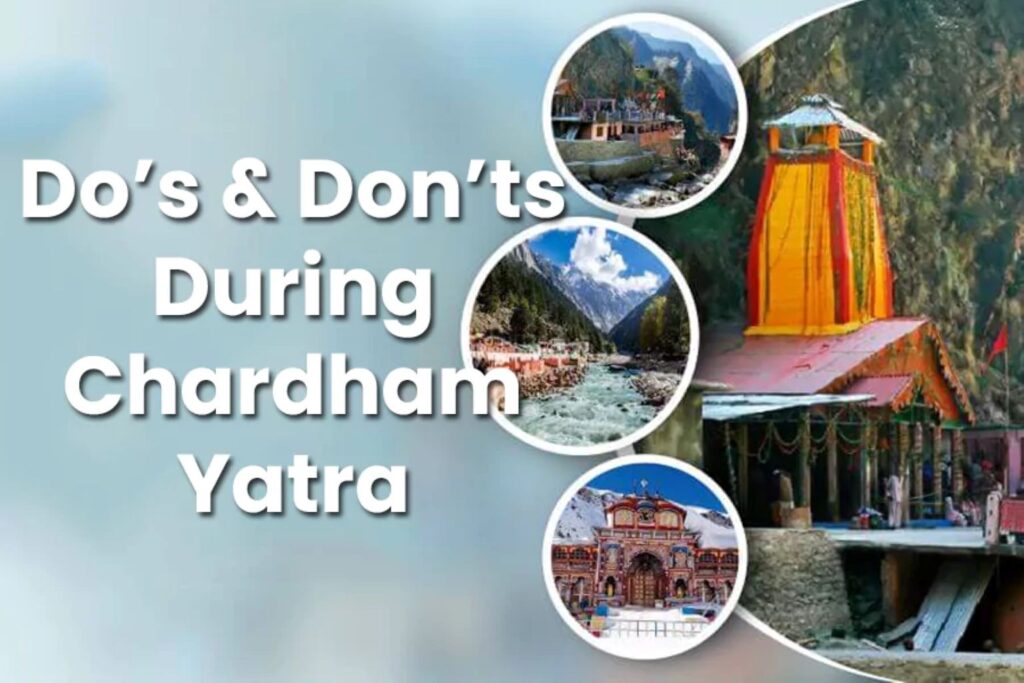
The Char Dham Yatra—covering the sacred shrines of Yamunotri, Gangotri, Kedarnath, and Badrinath—is one of India’s most revered pilgrimages. Beyond its spiritual significance, this journey challenges your physical endurance, mental resilience, and planning skills. Proper preparation and mindful conduct can make your Yatra not only fulfilling but also safe, enjoyable, and stress-free.
Pilgrims must register through the official Uttarakhand government portal or authorized counters. Registration is essential for safety, tracking, and emergency assistance. Always keep a digital and physical copy of your registration.
The trek involves high altitudes where oxygen levels are low. A full health check-up—especially for heart, blood pressure, or respiratory issues—is recommended. Gradual physical preparation through walking, light jogging, or yoga can help reduce fatigue and altitude sickness.
Carry warm layers, waterproof gear, trekking shoes, medicines, ID proofs, and personal toiletries. Remember, you’ll be walking long distances, so prioritize light, multifunctional items over bulky luggage.
Peak season sees heavy crowds. Pre-booking accommodations, buses, cabs, and helicopter services avoids last-minute stress and ensures a smooth itinerary.
Drink water frequently and carry a reusable bottle. Eat light, vegetarian meals at clean, trusted eateries to avoid stomach issues.
Wear modest, comfortable clothing and refrain from wearing leather inside temples. Follow local rituals and maintain decorum while inside the sanctum.
Greet locals with respect, avoid loud conversations, and participate in ceremonies with sincerity. Your attitude enhances the spiritual atmosphere for everyone.
Carry a small first aid kit, prescribed medicines, emergency contacts, and Yatra maps. Network coverage can be weak in remote stretches, so offline maps are useful.
Altitude sickness can be dangerous. Take rest if you feel dizzy, nauseous, or short of breath. Never push your limits for the sake of completing a trek.
Heavy luggage slows you down and increases fatigue. Keep cash, jewelry, and fragile items minimum to avoid theft or damage.
Follow photography restrictions, avoid cutting in line, and maintain silence during prayers. Respecting rituals ensures a smooth spiritual experience.
The Himalayan ecosystem is fragile. Carry back all waste, avoid single-use plastics, and maintain the sanctity of rivers and forests.
Rain, snowfall, landslides, and floods can make trekking dangerous. Follow local advisories and postpone travel in unsafe conditions.
The Yatra is a sacred journey, and preserving the environment is part of the devotion. Use steel or reusable bottles, cloth bags, and biodegradable items. Support local shops, guides, and homestays—your contribution sustains the mountain communities. Mindful travel ensures a cleaner, safer, and more spiritual journey for everyone.
A memorable Char Dham Yatra is about the journey as much as the destination. With thoughtful planning, respect for local culture, and mindful eco-conscious habits, you can make your pilgrimage safe, spiritually enriching, and truly unforgettable.
Looking for a smooth, hassle-free Yatra? Book your hotels and customizable Char Dham packages with us today for a safe and comfortable pilgrimage experience.
The ideal period is May to June and September to October, when weather is favorable and temples are open.
Yes. Pilgrims must register via the official Uttarakhand portal or authorized counters for safety and tracking.
Essentials include warm clothes, rain gear, trekking shoes, medicines, ID proofs, reusable water bottles, and light snacks. Avoid excessive luggage.
The Yatra involves treks at high altitudes and long travel distances. Moderate fitness is recommended; walking or light cardio beforehand helps.
Yes, helicopters are available for Kedarnath and Badrinath. Pre-booking is advised during peak season for convenience and safety.
Use reusable bottles and bags, avoid single-use plastics, carry back waste, and support local businesses to protect the fragile Himalayas.
Altitude sickness, fatigue, cold, dehydration, and digestive problems are common. Stay hydrated, rest adequately, and carry basic medicines.
